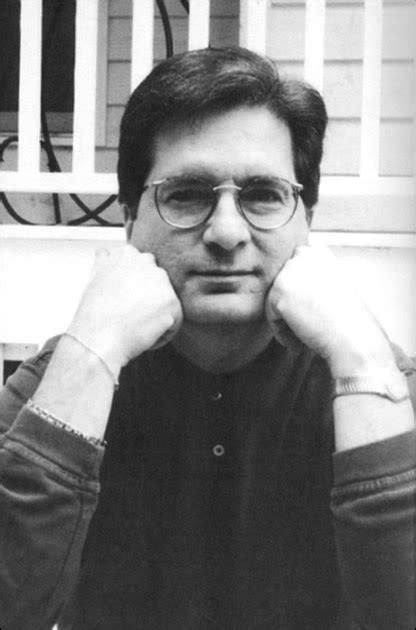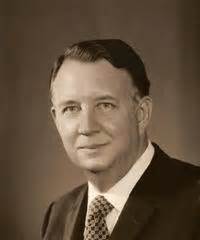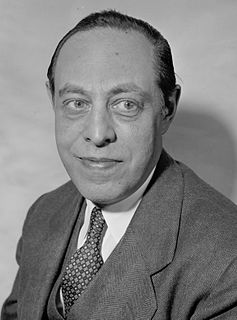Top 1200 Literary Merit Quotes & Sayings - Page 2
Explore popular Literary Merit quotes.
Last updated on December 19, 2024.
Do you realize this? That if you were to somehow purpose to, from this day on, perfectly please God and succeed in doing it, that that perfect obedience, from this moment, would not acquire in the remainder of your life, enough merit to atone for one past sin, because God exacts and God demands perfect obedience and there's no merit for giving him the minimal requirement.
The criminal law has, from the point of view of thwarted virtue, the merit of allowing an outlet for those impulses of aggression which cowardice, disguised as morality, restrains in their more spontaneous forms. War has the same merit. You must not kill you neighbor, whom perhaps you genuinely hate, but by a little propaganda this hate can be transferred to some foreign nation, against whom all your murderous impulses become patriotic heroism.
I told that girl, in the kindest, gentlest way, that I could not consent to deliver judgment upon any one's manuscript, because an individual's verdict was worthless. It might underrate a work of high merit and lose it to the world, or it might overrate a trashy production and so open the way for its infliction upon the world. I said that the great public was the only tribunal competent to sit in judgment upon a literary effort, and therefore it must be best to lay it before that tribunal in the outset, since in the end it must stand or fall by that mighty court's decision any way.
My claim is simply that the literary approach is one necessary way to read and interpret the Bible, an approach that has been unjustifiably neglected. Despite that neglect, the literary approach builds at every turn on what biblical scholars have done to recover the original, intended meaning of the biblical text.
To be an object of hatred and aversion to their contemporaries has been the usual fate of all those whose merit has raised them above the common level. The man who submits to the shafts of envy for the sake of noble objects pursues a judicious course for his own lasting fame. Hatred dies with its object, while merit soon breaks forth in full splendor, and his glory is handed down to posterity in never-dying strains.
Supreme Court says pornography is anything without artistic merit that causes sexual thoughts, that's their definition, essentially. No artistic merit, causes sexual thoughts. Hmm... Sounds like... every commercial on television, doesn't it? You know, when I see those two twins on that Doublemint commercial? I'm not thinking of gum. I am thinking of chewing, so maybe that's the connection they're trying to make.
It may be a mere patriotic bias, though I do not think so, but it seems to me that the English aristocracy is not only the type, but is the crown and flower of all actual aristocracies; it has all the oligarchical virtues as well as all the defects. It is casual, it is kind, it is courageous in obvious matters; but it has one great merit that overlaps even these. The great and very obvious merit of the English aristocracy is that nobody could possibly take it seriously.
No one should judge that he has greater perfection because he performs great penances and gives himself in excess to the staying of the body than he who does less, inasmuch as neither virtue nor merit consists therein; for otherwise he would be an evil case, who for some legitimate reason was unable to do actual penance. Merit consists in the virtue of love alone, flavored with the light of true discretion without which the soul is worth nothing.
That literary-popular distinction is, in my view, vastly overstated. At the far poles there are clearly books that are purely commercial and purely literary, written for audiences that want to see the same thing enacted over and over and over again. But the middle is where most people read and most people write.
My literary criticism has become less specifically academic. I was really writing literary history in The New Poetic, but my general practice of writing literary criticism is pretty much what it always has been. And there has always been a strong connection between being a writer - I feel as though I know what it feels like inside and I can say I've experienced similar problems and solutions from the inside. And I think that's a great advantage as a critic, because you know what the writer is feeling.
What was needed was a literary theory which, while preserving the formalist bent of New Criticism, its dogged attention to literature as aesthetic object rather than social practice, would make something a good deal more systematic and 'scientific' out of all this. The answer arrived in 1957, in the shape of the Canadian Northrop Fryes mighty 'totalization' of all literary genres, Anatomy of Criticism .
There are so many new young poets, novelists, and playwrights who are much less politically committed than the former generations. The trend is to be totally concentrated on the literary aesthetic and to consider politics to be something dirty that shouldn't be mixed with an artistic or a literary vocation.
There are characters in some short stories who exist as people, and there are other characters in different short stories who exist as purely literary constructs. You know, the young man in "Forbidden Brides of the Faceless Slaves in the Secret House of the Night of Dread Desire" - I probably got that right - is a literary construct, and enjoys being a literary construct. He has no life off stage, whereas the young men in "How to Talk to Girls at Parties" were as near to being real human beings as I could possibly get them.
On a spectrum of literary productions, memoir is just another form. If the person doing the reviewing or critiquing was ill-educated about literary forms, they could write something dunderheaded about the author or their life (I've seen these and barfed at them), but anyone who is well-practiced and educated in literature - why would they leave that at the door when entering memoir?
There is a sort of homely truth and naturalness in some books which is very rare to find, and yet looks cheap enough. There may benothing lofty in the sentiment, or fine in the expression, but it is careless country talk. Homeliness is almost as great a merit in a book as in a house, if the reader would abide there. It is next to beauty, and a very high art. Some have this merit only.
[Michael] Chabon, who is himself a brash and playful and ebullient genre-bender, writes about how our idea of what constitutes literary fiction is a very narrow idea that, world-historically, evolved over the last sixty or seventy years or so - that until the rise of that kind of third-person-limited, middle-aged-white-guy-experiencing-enlightenment story as in some way the epitome of literary fiction - before that all kinds of crazy things that we would now define as belonging to genre were part of the literary canon.
But I'm not a small-literary-novel kind of guy, and once I'd developed the world in the first couple of hundred pages, I felt that there was potential here to go on and write an engaging story set in that world. So that's what I did. This probably ruins things both for the people who want small literary novels and for those who want action-packed epics, but anyway, it's what I wrote.
The nation as the horizon of an identity that you want to come into being as a fundamental absence of something that is compromised, something that needs to be rescued or made - these matters preoccupy the third world writer. It is seductive for a Marxist understanding of literary practice and production in the sense that it says that material culture determines literary output.
To vest a few fallible men — prosecutors, judges, jurors — with vast powers of literary or artistic censorship, to convert them into what J. S. Mill called a "moral police," is to make them despotic arbiters of literary products. If one day they ban mediocre books as obscene, another day they may do likewise to a work of genius.
When we consider the close connection between science and industrial development on the one hand, and between literary and aesthetic cultivation and an aristocratic social organization on the other, we get light on the opposition between technical scientific studies and refining literary studies. We have before us the need of overcoming this separation in education if society is to be truly democratic.
A word is used "correctly" when the average hearer will be affected by it in the way intended. This is a psychological, not a literary, definition of "correctness". The literary definition would substitute, for the average hearer, a person of high education living a long time ago; the purpose of this definition is to make it difficult to speak or write correctly.
In my profession more generally, it's not an exaggeration to say that masculinity is viewed as the root of all evil. If you were to take a literary theory course, you might think it would be about literature, but it's really not. It's about all the various forms of oppression on earth and how we can see them playing out in literary works. And behind all these forms of oppression is a guy.
[Michael] Chabon is arguing in favor of what is at the same time an old-fashioned and very forward-thinking opening up - of taking off the class associations with those labels, because we grew up, or I certainly grew up, feeling that, "Oh, there's literary fiction, and beneath that, there's these other things." He's actually saying that they're all of equal merit, and in many cases, that work in the genres, or work that draws from the genres is more entertaining for readers, since it is our job to entertain people.
You will see in this my notion of good works, that I am far from expecting to merit heaven by them. By heaven we understand a state of happiness, infinite in degree, and eternal in duration. I can do nothing to deserve such rewards... Even the mixed imperfect pleasures we enjoy in this world, are rather from God's goodness than our merit, how much more such happiness of heaven!
The moment in the account of Adam and Eve in the book of Genesis is when they realize they're naked and try and cover themselves with fig leaves. That seemed to me a perfect allegory of what happened in the 20th century with regard to literary modernism. Literary modernism grew out of a sense that, “Oh my god! I'm telling a story! Oh, that can't be the case, because I'm a clever person. I'm a literary person! What am I going to do to distinguish myself?...a lot of modernism does seem to come out of a fear of being thought an ordinary storyteller.
Only idiots or snobs ever really thought less of 'genre books' of course. There are stupid books and there are smart books. There are well-written books and badly written books. There are fun books and boring books. All of these distinctions are vastly more important than the distinction between the literary and the non-literary.























































